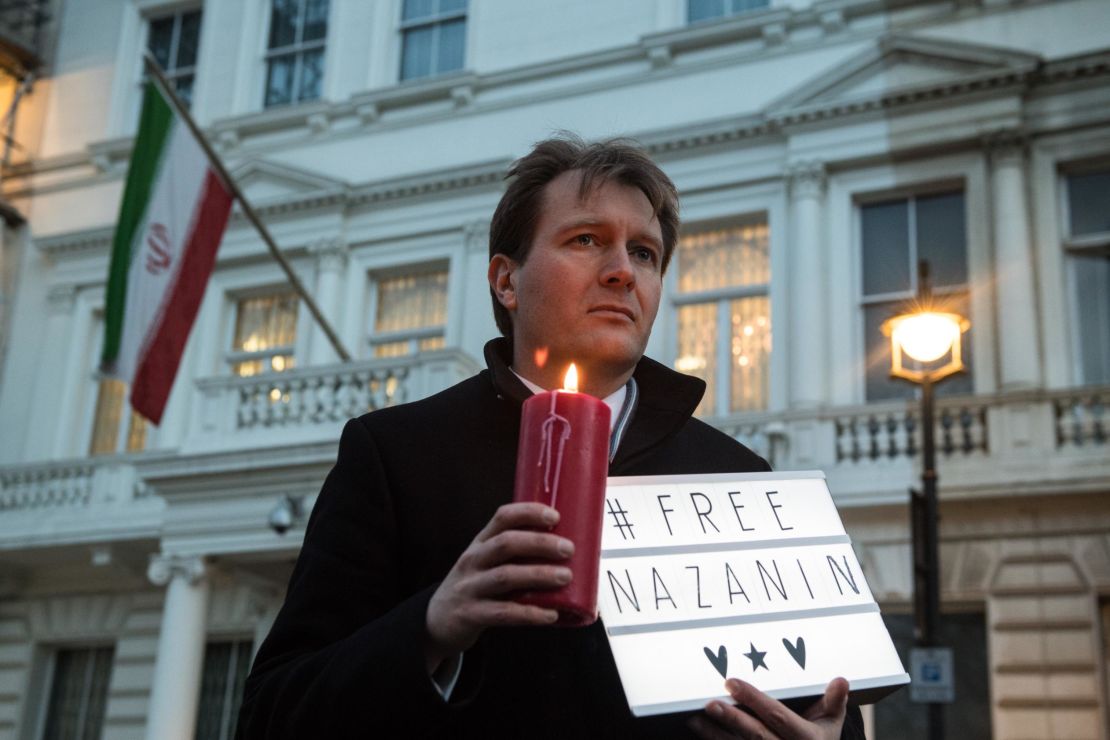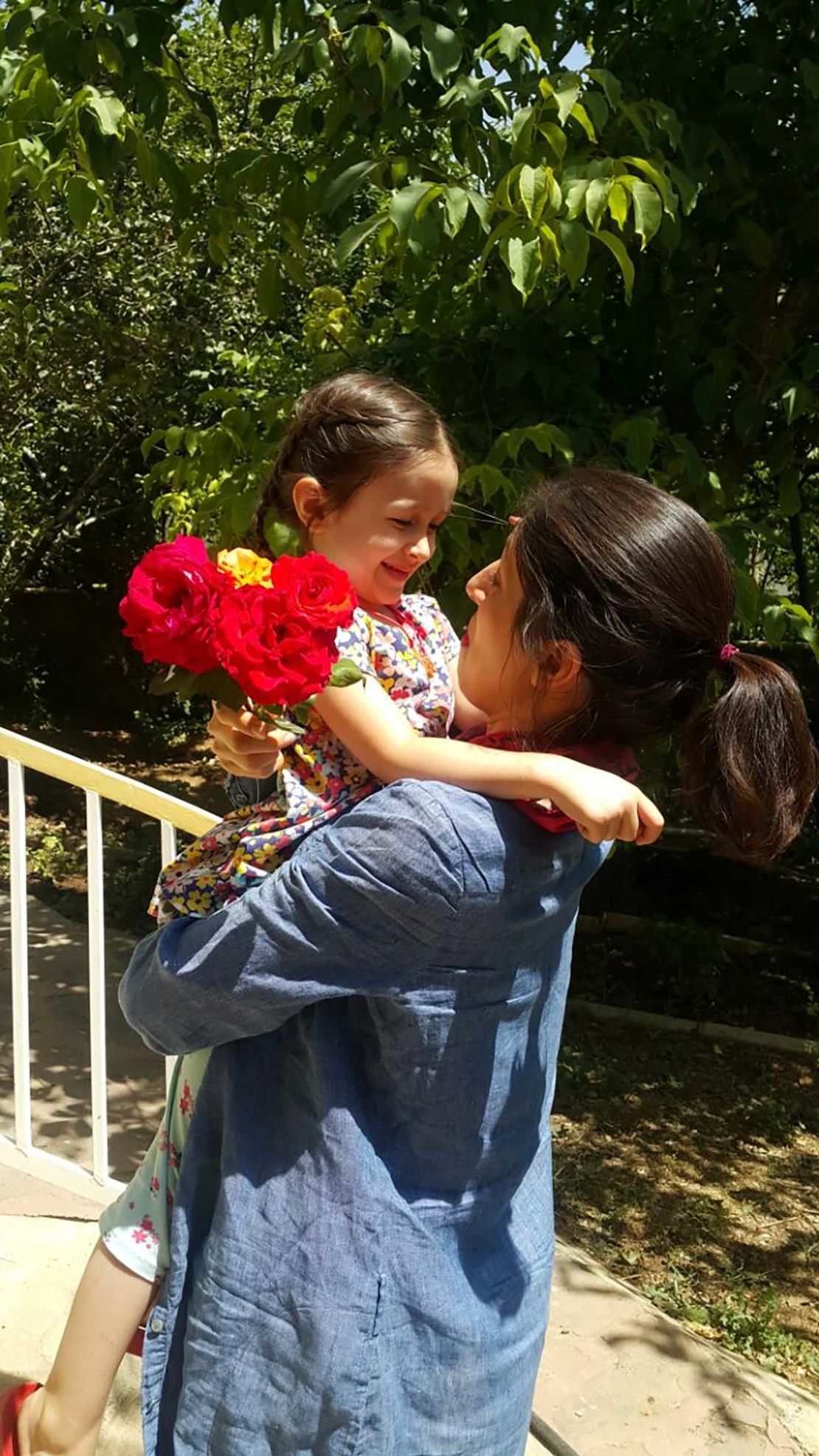Nazanin Zaghari-Ratcliffe, a British-Iranian woman imprisoned in Tehran since 2016 on spying charges, has been temporarily released, the Free Nazanin campaign said in a statement Thursday.
The release is initially for three days, the statement said, but Zaghari-Ratcliffe’s lawyer is hopeful this can be extended.
“This was a very happy surprise after a number of false dawns recently, which had been increasingly unsettling,” the campaign group said.
Zaghari-Ratcliffe is currently in Damavand, east of Tehran, with her family, including her 4-year-old daughter Gabriella.
“It will be just awesome for Gabriella to have mummy home finally,” Zaghari-Ratcliffe said through the campaign group.
“We can play with her dolls house, and she can show me her toys. The thought of brushing her hair, and giving her a bath, of being able to take her to the park, and feed her, and sleep next to her – it just kills me. It is still so hard to believe.”
Zaghari-Ratcliffe was first detained at Tehran’s airport in April 2016 while on her way back to the UK from visiting family with Gabriella, who was then 22 months old.
The Iranian government accused her of working with organizations allegedly attempting to overthrow the regime. She was sentenced to five years in jail and her child was placed in the care of her parents.
Her employer, the Thomson Reuters Foundation, rejected the allegations.
In May, Iranian media reported that she was due to face a new trial for “security-related” charges.
The Thomson Reuters Foundation CEO said she was “delighted” at Zaghari-Ratcliffe’s temporary release.
“We see this as a positive sign and hope that this will lead to her permanent release and an end to her traumatic ordeal for good,” Monique Villa said in a statement.
Writing on Twitter, British Foreign Secretary Jeremy Hunt described Thursday’s announcement as “really good news,” but called for Zaghari-Ratcliffe’s permanent release.
“Being in prison AT ALL is gross injustice and she must be PERMANENTLY released for which every effort will continue,” he wrote.
Zaghari-Ratcliffe’s husband, Richard Ratcliffe, has been the driving force behind the Free Nazanin campaign and has been very critical in the past of the UK government’s handling of the case.
While acknowledging Thursday that he “may need to be critical again,” he thanked Hunt and all those involved in negotiating his wife’s temporary release. “Today is a good day,” he said.

‘A genuine surprise’
Zaghari-Ratcliffe’s release is subject to certain conditions, according to the campaign group. She is not allowed to leave the country, visit the grounds of any foreign embassy or conduct interviews with the media.
According to the group, it is standard practice for prisoners in Iran to be released for a short period initially, but for their furlough then to be extended. Zaghari-Ratcliffe’s lawyer will request an extension on Saturday, the group said.
Although Zaghari-Ratcliffe and her family had been aware of the possibility of temporary release for some time, they had lost hope that it could happen and were surprised to receive a phone call Thursday morning, according to the group. Zaghari-Ratcliffe was given just 10 minutes to get ready to leave Evin prison, the group said.
Earlier this year, she had requested a temporary release to visit Gabriella, whom she had not seen for more than two years and who celebrated her fourth birthday in June. Despite high hopes, her release was not authorized.
“Today was a genuine surprise after all the disappointments,” Richard Ratcliffe said. “We have been burned by hope before, so it had been easier to presume disappointment would come again.”

Diplomatic rift
Zaghari-Ratcliffe’s imprisonment sparked a diplomatic spat between Britain and Iran.
In December last year, then British Foreign Secretary Boris Johnson visited Tehran to try to raise Zaghari-Ratcliffe’s case with the Iranian government.
The visit came a month after Johnson was forced to apologize for a serious misstep in which he told a UK parliamentary committee that Zaghari-Ratcliffe had been teaching journalism during her visit to Iran. He later clarified that she had been visiting relatives before she was detained.
The comments apparently led to Zaghari-Ratcliffe being summoned to an unscheduled court hearing, at which Johnson’s remarks were cited as proof that she had engaged in “propaganda against the regime.”
Johnson later backtracked and apologized for his comments.
CNN’s Hannah Ritchie, Bharati Naik and James Masters contributed to this report.
